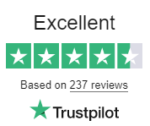Hello Workshopers and welcome to episode 3 of The Workshop! Tools down, grab some smoko, sit on the Eskis and bring them a little bit closer. We have an amazing episode for you today. New year, new course new trainer. We’re going to be talking everything painting and decorating with Brian.
I bet you didn’t think the first week was going to end up in here.
No, not at all. Any chance of getting guys interested in the field of painting and decorating…
Getting lucky for a living?
Exactly. Putting the waitstaff on.
Awesome. Brian, tell me all about yourself.
Okay, I’m originally from the ACT Canberra. But I did my apprenticeship back then, back in 88, I’m old man!
Tell me more about your apprenticeship in 88.
It was through Bruce TAFE College or TAFE, actually. And from that, it’s a four year course. We went to school once a week on the Tuesdays. It wasn’t block release, way back then. And you did school for three years. And you were on the tools for four years.
That’s quite a long process.
It is. But fortunately enough, I did through the Master Builders Association, which fortunately enough, my dad was running the apprenticeship scheme.
That’s helpful!
So I could have actually done any apprenticeship if I wanted to but that’s a long story anyway. But if you got 75%+, you actually get 4 months knocked off your apprenticeship. So I actually did in three years instead of four.
Nice, very well done.
Which was good, especially being older as well, it helped out because the wages weren’t all that great way back then. It’s changed a fair bit now.
So you said you could basically do any apprenticeship you want. So why the wet stuff? Why paint? Well, basically, I needed something. And obviously speaking to my old man, he just said, you need something to fall back on. And trade was one of those things that you could quite easily fall back on. And it’s helped me out over the time as well. But painting, you don’t need a lot of tools to go and paint a house or just to do some maintenance work. It was cheaper. All you need is pretty much a ladder, paint brush, a pot, a roller, roller bucket, and you can go and paint something.
Awesome.
So it was a cheaper option that I found.
Okay, so you finished your apprenticeship. What happened next?
Basically, I finished my apprenticeship. And I got out straightaway. Then I just entered in a few things. I was a debt collector there for a while. And then my girlfriend back then now she’s my wife, I wanted to come over to WA because her brother was over here working in the mines, she would have come over and I said yeah, why not? So come over for a year, I had about 15 years in the mining industry. And then unfortunately things well, there was a fire on the mine and it got closed down, and I picked up work within a week back on the tools. I have been on the tools since.
Cool! So what sort of things have you seen when you were on the tools?
I have worked on various sites throughout WA in regards to their children’s hospital. I say too much.
No, no one does.
A couple of properties around the foreshore this one yeah, that sort of stuff. Down south I was helping running the transition from Caltex to Ampol, all their service stations there, painting them and all that sort of stuff. And then I went into sort of the maintenance type scenario, where I was on the road and just patching and painting.
A lot of commercial?
Yeah. Yeah. A bit of commercial work, a little bit on the stadium. Not much, but a little bit on there. Yeah, mainly maintenance work, really.
So having done your apprenticeship and then sort of stepping out how had the industry changed for you when you stepped back in?
All the products, the paints and so forth, especially going from an animal to waterbased and all that sort of stuff, Dulux that are trying to get away from the oil based paints and into the enamel waterbase. And other manufacturers have sort of followed the lead.
They were also doing that by about 12 years ago.
Yeah, yeah. So that’s that’s changed, changed a fair bit. Even the technology, the paint has changed a lot. Whereas when it first came out, it was hard to apply. You pretty much had to have perfect conditions.
Of course, because with the heat here as well!
The oil weakened and all that sort of stuff, but now the technology within the paints just got a lot better. And it’s easier, it’s easy, you still may have to put additives in it, but it’s a lot easier to play with these days.
Any other changes?
Obviously your fillings and all that sort of stuff, got a lot better drying times and so forth, so you’re not waiting around as much, watching the paint dry you know how it goes. It’s like watching cricket test guy for three days! But yeah, even the tools are a lot better. The only problem is with the brushes, they’re all gone synthetic now. Which is not bad, but they’re easy to clean, pretty easy to maintain.
What’s the big difference in between the bristle and the synthetic?
Probably the wear and tear of them really. The bristles are a lot better, especially when using the gloss paints. You tend to get a better sort of mirror finish more so than the synthetic. Sometimes if you’re having sort of played with the paint a little bit, you do get brushstrokes through it. And depends on how you put it on as well.
And obviously also the temperature. Yeah, exactly.
So yeah, there has been a lot of changes in tools and paints and all that sort of stuff, which is for the best, which is really good.
In your experience, who would you think makes a great painter?
I would just say just about anybody, anyone who’s just about… who likes to see a finished product.
It’s interesting you said that! I had Sandro on before. And he said the same thing about wall and floor tiling is that it’s about the finished product.
Yeah, we’re finishing trade. So we came after basically everybody we’re usually the last ones in, but you’ve gone from a blank canvas, bare woods, or bare metal or even bare timber and, and plaster board and all that sort of stuff. And you put a bit of colour on it, wet stuff. And it just brings up a picture. Everything’s looking nice, fresh, clean, just you walk into a house, and everything, even without furniture, and everything is just nice and clean. You just feel good walking in and having a look. But as a painter actually seeing that from start to finish, it’s rewarding.
What are you excited about with the new course?
To be honest, changing people’s lives. To be honest, I did work in the prisons for three years. And I had a pretty good experience that an inmate who got out of prison. I was in Dulux at the time. And he tapped me on the shoulder and put his hand out, shook my hand. And for some reason, I just couldn’t picture him. I said, ‘Well, I know you from somewhere, but I just don’t know your name’. And he said, I’ve just started as a brush head. And my world just changed. That’s basically because I made a difference. And through education, that’s my job, is to make someone change their lives, get their life on track, have something to fall back on, and move forward. And that’s that’s what i want to be a part of.
Speechless. It’s not often someone catches me out speechless! Do you have any other success stories from your time back then?
I created a painting team within the prison, which was which was quite good, which did one of the main educating buildings in the prison, which was quite good. We had four painters from our course that did the course and got them up to a standard, that the powers of B were quite happy with their standard because they come down and look at their work down in the workshop. And it says, well, let’s give them a go. And we did a couple rooms. And they were happy with that I said the whole building internally is yours. So that crew was working probably about two and a half, three months to actually do the whole building, which was quite rewarding considering that you’ve got that was a main job in mornings. And everyone was seeing so from that it built everyone wanted to do painting. Because what the inmates was seeing is that they were actually doing a job within a prison. It wasn’t just a mundane thing, go back to your cell block and do whatever, you’re actually doing a job. So it took a lot of time thinking whatever. But it was getting them ready to actually do some work on the outside as well.
I would imagine though, in the wrong hands that would have gone quite spectacularly wrong. So what did you do to foster that environment?
They were fortunate enough the prison had a pretty good system in regards to controlling the tools. And not only that, they had peer tutors, which was actually an inmate which helped me cement me overseeing the tutor. Communicating with the tutor, this is what we want to do. This is the area that we want to do. We barricaded the area off, went in and painted it. Once it’s finished, moved on to the next area. So in essence the areas we were in, we were the only ones there. But we were restricted with our time. So it was quite good that we had painting team. So we’re able to do whatever we had to do in a timeframe they gave us which was quite good, but we didn’t have that interaction all over. It’s just we closed off an area we went in, painted and then we moved on to the next month.
Amazing. We’re recording this now during the week, and it’s been a pretty busy first week for you. And I would imagine you’ve been doing a lot of planning. In terms of material, what are the guys gonna be working with?
Obviously, they’re going to be working with everyday painting materials as far as tools and paints and so forth, about where…
I want named drops hahah
Not quite sure yet, but I got to talk to Dulux and Wattle at the moment, but we’ll move forward with those two. And we’re setting up cubicles and giving them ownership of their areas, which I think it’s very important. I can go in there and say, Well, this is your area, this is what you need to do. Let’s maintain it. So they’ve got some sense of this is their project. And they can… what I mentioned earlier on in regards to seeing start to finish, they’ll see exactly that.
So walk me through it. I’m stepping into a cubicle. Day one. What are we doing?
Well, have a look and going over what substrates are there. What I mean by substrate is, what sort of services they are, whether it’s wooden door, wooden frame or metal frame…
We can mix up? Yeah, right. We got render, we live plasterboard or drywall, if you want to call it these days.
I put my hand up for my office getting done first!
Actually, our offices we will be doing, getting done too, which is good. Which is another another good path for the guys. Because it’s not going from new, it’s actually redoing, which is slightly different. But again, you’ll see some good results.
What are we doing next after that?
I’m looking at substrate and seeing what materials we can use to actually bring it up to a standard of painting, we go through a process of pairing the surface, in regards to maybe sanding, filling, washing, possibly with sugar soap, and then going through the process of undercoating for sealing. And then getting into your finished coats and so forth, whether it could be low sheen, gloss, depending if you’re using… if we’re gonna put gutters as well, so you’ll get to use some external paints as well. You’ll learn how to match colours, as well….
I was just about to ask because obviously it’s a massive statement colour on the wall. Are we going to walk, we’re going to pick some colours?
Yes, certainly will. And match colours as well, which is, which is very important.
They got to know who to go to in the paint shop. Who’s that?
Oh, well, you know, it used to be me, actually. So back in the day I was in the van, I used to love doing the colour matching. So I think part of the trade is knowing who to go to the shop to get colour match!
We will be doing it the hard way in regards to yourself doing it. These days, you can…
Are you going to self-mix it? Yeah you can scrape a bit off the wall and take it to Dulux or Wattle store or even Bunnings too and take sample in and they’ll match the colour for you.
And by Dulux you mean the actual trade store?
We will teach you how to do it, there and there, on the ground as well.
I’d love to get called into that, I’ve never seen that. That’d be awesome. Are we gonna be mucking around a bit of render, any protective coatings?
Yep, different sort of coatings, marble finish. Also, you can paint a door that looks like marble, nice woodgrain finish as well, we’ll get into some texture coating and all that sort of stuff. And depending on how you’re progressing, and all that sort of stuff, I want to do some epoxy and all that sort of stuff. At times, we’re going to move forward. And with that time and space, we’ll get to learn other things like more special coatings and stuff, they’ll get a little bit more out of it. I hope.
I hope so too. It sounds really, really exciting. So, with that in mind, what would you say to a student that’s struggling a little bit to start with? What sort of things can we do to just help them out?
It’s a matter of talking to them, really, and finding out what they may have an issue. Working in prison for three years, you get to learn to deal with situations, people get up on the wrong side of the bed and all that sort of stuff and maybe missed a phone call that makes a massive difference, why they’re feeling so you’ve to be able to read the person that you’re dealing with, and speak to them, seeing what they want out of it, and then communicating with them and find out how we can get there. I think communication is massive for me. If you communicate with me, by far, you’ll pass the course. And you’ll enjoy doing it. Because it’s all about improving yourself. Giving them an opportunity and showing them that, possibly you could start your own painting business after it.
I was just about to ask because we’ve just taken in our first intake of painting decorating and where do you foresee these guys going?
Well, hopefully they stay in the painting game and develop their own business over time. Was pretty competitive out there. But if it’s word of mouth, you do a house for your family or your friends and all that sort of stuff where it gets around. ‘He’s done a great job. Alright, let’s get him in.’’ And then it can grow and grow and grow. And the world is your oyster, really, everything needs to be painted eventually, because paint doesn’t last, it does go off occasionally, colour fades this, that whatever, people move into a new house, I don’t like these colours, let’s change it, let’s get a painter in. Why not? A lot of people don’t like painting because of the prep work and all that sort of stuff. But in saying that, it’s changed a lot with the tools you can use for prep work. You’ve got the sanders and all those sorts of things. Whereas when I was doing my trade, everything goes by hand. So the time I used to spend doing prep work is cut in half or a quarter now. You got the right tool for the job, you can get through it pretty quick.
How long does it take to do a room start to finish, roughly?
This room, basically, you got the four walls and you’ve got the window frame and the door. Fortunate enough, it’s already been painted. But you’ve got to allow for drying time, paint dry again, watching the paint dry. But if you’re undercoat everything that means it goes through a process. And probably two days.
Let’s touch on apprenticeships a little bit. So we have a completely different model from obviously the international students that do their two year course here on campus, we actually offer a flexible education learning model, actually out on site. And honestly, that offers quite a lot of different advantages. What are we going to give these guys that nobody else can?
I reckon being able to run your own business. I think that’s the goal. Being good enough to… or being better than good enough to be honest, to be confident in going out there, sourcing work, and completing job to above the industry standard and maintaining that workflow.
So really, what we’re going to be looking at is the more real world principles of applying paint.
Yes, pretty much. Yeah. Making sure you’re doing the job correctly. And there’s like no call backs or anything like that. You get in there, do the job once and you’ll get repeat business from that.
What sort of things get a call back typically from a client?
Maybe you haven’t put enough paint on. And there’s a bit of shadowing, the prep work is good enough. Ultimately, if you want to do a good job, the prep work has to be spot on. Because when you put on the high sheen paints like the glosses, semi gloss, even low sheen, all that kind of stuff, they don’t hide. But so prep work is very important. Do that right, the job is gonna look good. Majority of the time.
Brian, I think that was great. Thank you. Guys, if you’d like to come and meet Brian, Brian’s available at the Perth Campus, and this is episode three of our ever Everthought trainer showcase series. Thank you so much for listening, and we’re looking forward to welcoming you onto a campus near you soon.












